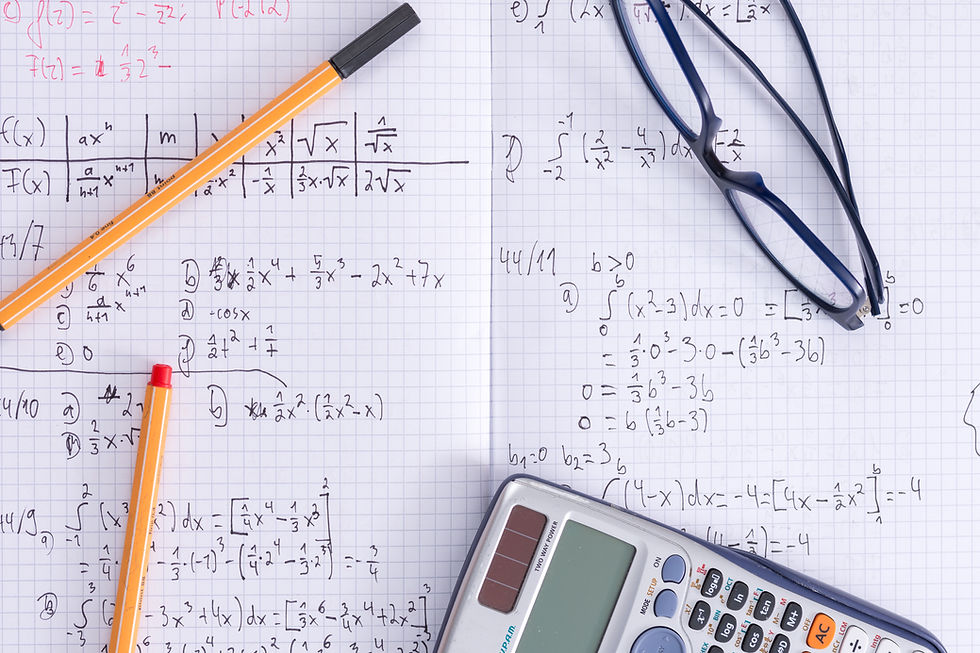What are the best revision methods for GCSE success?
- GCSE Tutor
- Nov 2, 2022
- 3 min read
Updated: Mar 28, 2023
This was the question we put to our grade 9 ex-students and GCSE teachers and examiners. Here are their top tips…
This video is part of a webinar series, put on free to help GCSE students be as affective as possible in preparing for their exams. You can view the YouTube playlist with each question broken down into short bite size answers here: GCSE Webinar Playlist
Mind Maps
Whether it is the process of preparing one or the visual nature of mind maps, our students agreed they'd been helpful in aiding them to understand and recall GCSE topics.
Our experts at GCSE Online Courses say: meaningful engagement with a subject is a critical factor in promoting deeper learning, but class lessons and textbooks don't always provide this for a lot of students (do not create meaningful engagement). Whereas mind maps allow learners to actively engage by connecting concepts together and building a visual pictures of complex subjects.
We have an article on using and making mind maps here
Vary Learning Formats (make it interesting)
When studying something like an English text you need to read the book (DO NOT SKIP THAT PART!). However, sometimes reading the text alone didn't feel like enough for our students and they found re-listening to it on audible or watching the film version supplemented their understanding and helped with memory recall.
If that sounds helpful, our courses offer a great way to supplement your GCSE text books and classroom materials. You can listen to qualified teachers and GCSE examiners explain the topics you're learning.
Interactive Flashcards
Our students recalled how they would go through the process of making flashcards, either on platforms like quizlet or anki or just paper and then test themselves frequently. Over time the process of reseraching and creating the flashcard, coupled with the interactive nature of testing yourself proved a powerful revision method.
"I would repeat the testing process until I memorise all of the information. It was the best way for me to develop memory recall of a subject, so when I was asked about it or it came up in the exam I was able to remember and use that information."
GCSE Past Papers
Our GCSE teacher advised: I think the best way to revise (particularly GCSE maths) is practicing past paper questions. You're not only practicing the subject but your ability to identify command words to ensure you understand what the question is asking. You can also use them to make sure that you are managing your time well, which is really important for top exam results. Very importantly, you must mark and review your answers to highlight where you are making mistakes and losing marks - addressing these areas of weakness will provide big gains for your final GCSE result.
"Practicing past paper questions is what I found to be most useful and something common that I see used with my most successful students."
Learn Actively, Not Passively
Reading or hearing something once and hoping to remember it, especially when your attention is spread across the many GCSE subjects, is not a great strategy (and is passive learning). Examples of active learning are writing notes, refining them into cue cards or mind maps that explain and visualise the subject in a way that you understand or explaining a topic to someone who doesnt know it (or recording yourself explaining it). Anyway in which you are exploring, researching and organising the information you're learning using your own thought process, is a good thing.









Finding the right academic support can be a challenge, but my experience with Rapid Assignment Help UK has been outstanding. Their Assignment Writing Service is professional, reliable, and tailored to university standards, ensuring every project is well-researched and plagiarism-free. When I struggled with case studies and business strategy reports, I reached out for a management assignment helper, and the expert they provided guided me through every step of the process. The assignments were delivered on time, formatted correctly, and even helped me understand complex management concepts better. I can confidently say their services reduce stress and improve academic performance.
¡Hola a todos! Hace poco descargué la jugabet apk y la experiencia cambió totalmente. La app es rápida, estable y fácil de usar. Puedo jugar en cualquier lugar, aprovechar promociones y acceder a apuestas en vivo sin depender del navegador. Definitivamente más cómodo y divertido para jugar desde el móvil.
Mind maps, interactive flashcards, and varied learning formats are all fantastic tools for boosting GCSE revision effectiveness. Just like these methods enhance understanding, Assignment Help Leicester supports students by offering customized academic assistance. Combining expert guidance with active learning can truly make a difference. Whether it's English texts or science topics, mixing study strategies helps information stick. Stay consistent and keep learning fun.